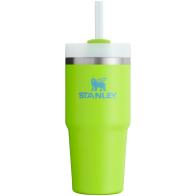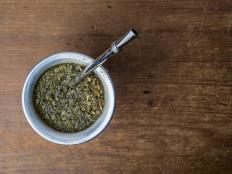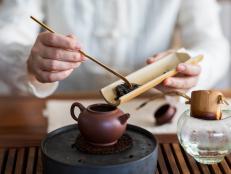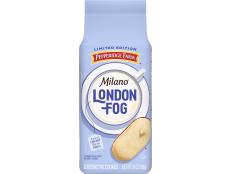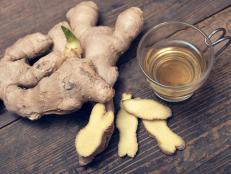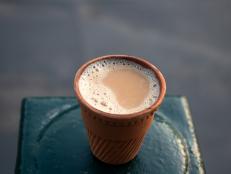Is Kombucha Healthy?
If you love this fizzy fermented beverage, there's a chance you may be consuming too much of it.

Kidsada Manchinda/Getty Images
You've almost certainly seen kombucha while grocery shopping. In America in the 1990s you could find it in some health food stores or home-brewed by enthusiasts, but today you can find commercially bottled kombuchas in mainstream supermarkets, wholesalers and even gas stations. Kombucha is lauded by many as a functional beverage that may improve digestion and even prevent aging. Lots of people love it for its sweet taste and fizzy nature. However, there is concern that it’s not as healthy as some believe.
What Is Kombucha?
Kombucha is a fermented tea, made by combining tea with sugar, bacteria and yeast. It is believed to help improve digestion and prevent aging. Kombucha is thought to have originated in Asia during the Chinese Tsin dynasty in 212 BC.
Kombucha is fermented using a live culture — kind of like a sourdough starter. The live culture mix that brewers use is called “SCOBY,” which stands for “symbiotic culture of bacteria and yeast.” Fermentation happens within 7 to 10 days; during that time the bacteria and yeast feast on the sugar, producing vitamins, acids and a very small amount of alcohol (which is a natural by-product of fermentation). The result is a sweet, sour and slightly fizzy tea that also contains live, active cultures. Each brand of kombucha has a different flavor due to slight differences in its recipe and SCOBY.
Health Benefits of Kombucha
The live, active cultures may act as probiotics, which gives kombucha the gut-health benefits it’s known for. The probiotics help with digestion and help fortify the immune system.
And if you like fizzy beverages, kombucha has a fraction of calories compared to soda. For example, Health-Ade’s Ginger-Lemon flavor provides 80 calories per 16 fluid ounces, while a 12-ounce size cola has 140 calories. In addition, kombucha made with black or green tea naturally contains caffeine.
If You Brew Your Own Kombucha...
If you like to brew your own kombucha, there are certainly food safety risks involved. If you don’t brew it correctly, you can end up with too many bacteria and/or mold in your beverage, which can potentially make you sick. According to a 2013 report published in Journal for Environmental Health, as long as you purchase kombucha from a reputable company it is safe to drink, however those who are immune compromised, older adults (60 years and older), pregnant or breast feeding may want to avoid kombucha. In 1995 two older people became sick after drinking 1 1/2 cups per day. After this incident, the Centers for Disease Control (CDC) made a recommendation to drink no more than 1/2 cup of kombucha daily — most bottles contain multiple servings per container.
Reported side effects of drinking kombucha include stomach issues and allergic reactions. In addition, the research conducted with kombucha has primarily been conducted in laboratory animals, not in clinical studies with humans. As such, there is really little evidence to suggest that the health claims related to kombucha are true. Some experts believe that due to the lack of scientific data for its health benefits, other fermented foods with more solid research like yogurt, kimchi, and kefir should be eaten to get the gut-health benefits.
Is Kombucha Techincally "Alcoholic"?
Another issue that has come up is the alcohol content in kombucha. During fermentation, alcohol is naturally produced. In 2015, the U.S. Alcohol and Tobacco Tax and Trade Bereau called out several producers of kombucha that their tea had too much alcohol and that they would be fined if they didn’t correct their label or reformulate their beverage. Under federal law, the finished kombucha product should have less than 0.5% alcohol per serving. Anything more than that is regulated and marketed as an alcoholic beverage.
Bottom Line
There is no miracle food or beverage on the market and kombucha is no exception. If you’re a fan of the fermented tea, enjoy it in moderation from a reputable source.
Toby Amidor, MS, RD, CDN, is a registered dietitian and consultant who specializes in food safety and culinary nutrition. She is the author of The Greek Yogurt Kitchen: More Than 130 Delicious, Healthy Recipes for Every Meal of the Day.
*This article was written and/or reviewed by an independent registered dietitian nutritionist.
Related Links:











